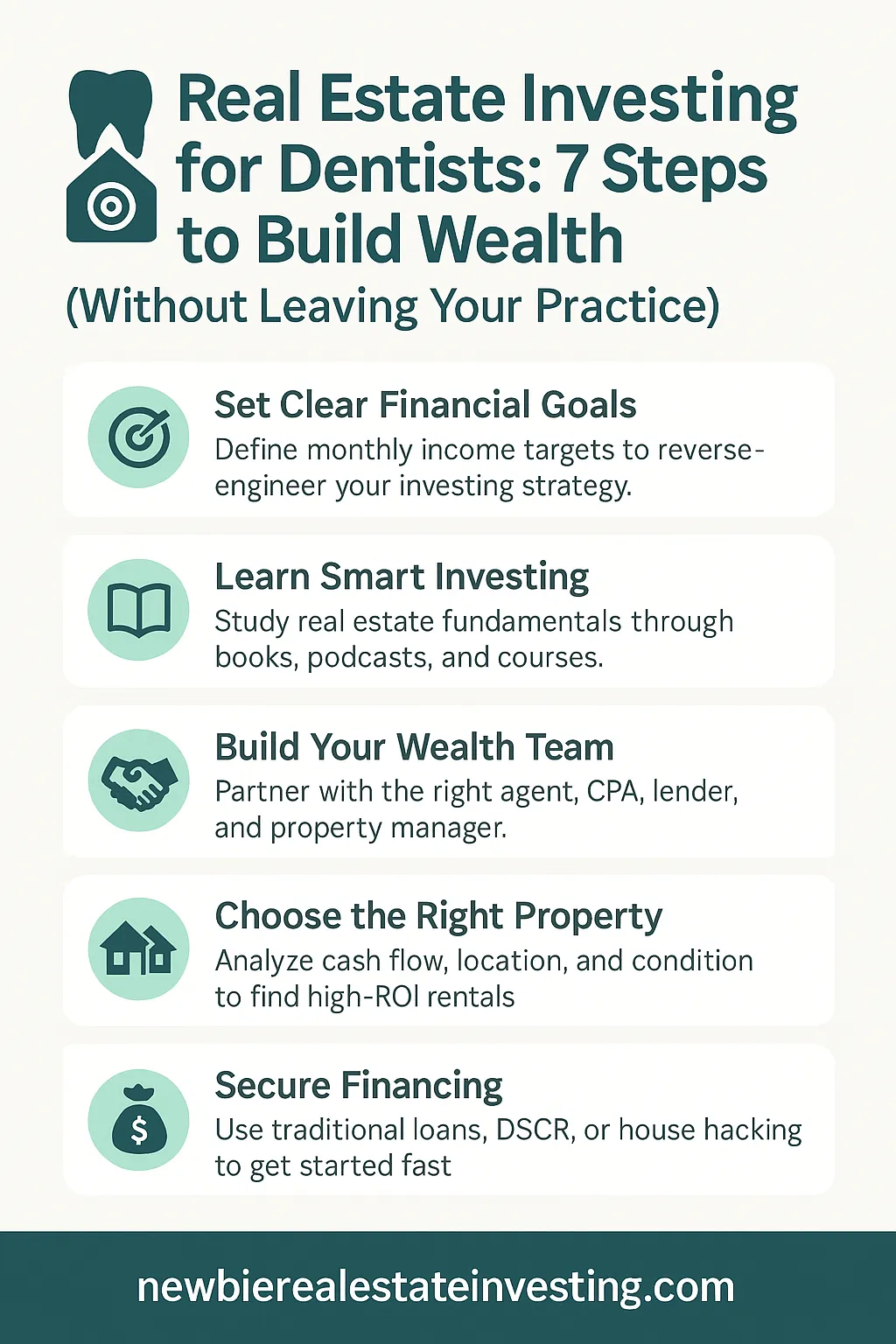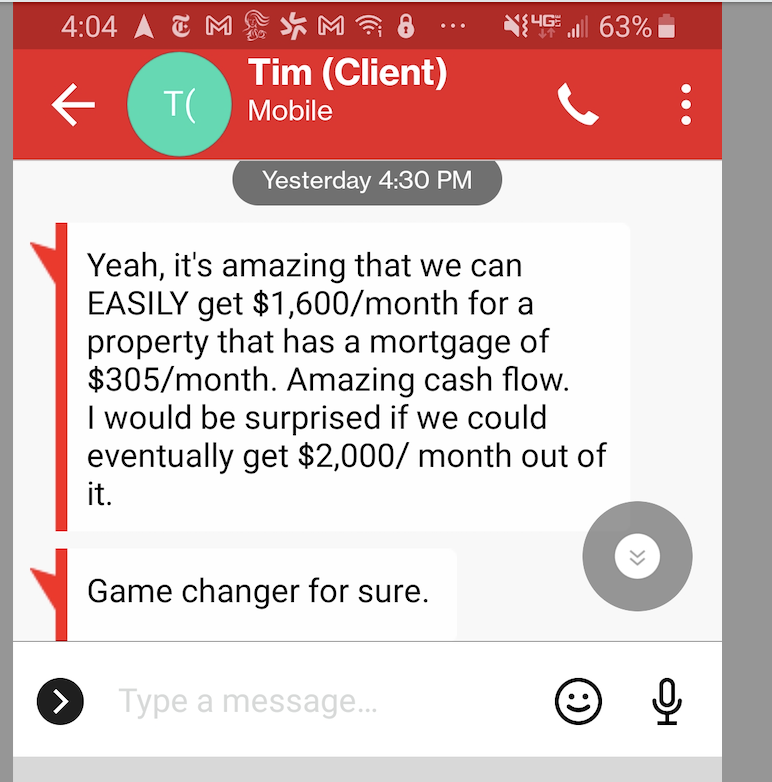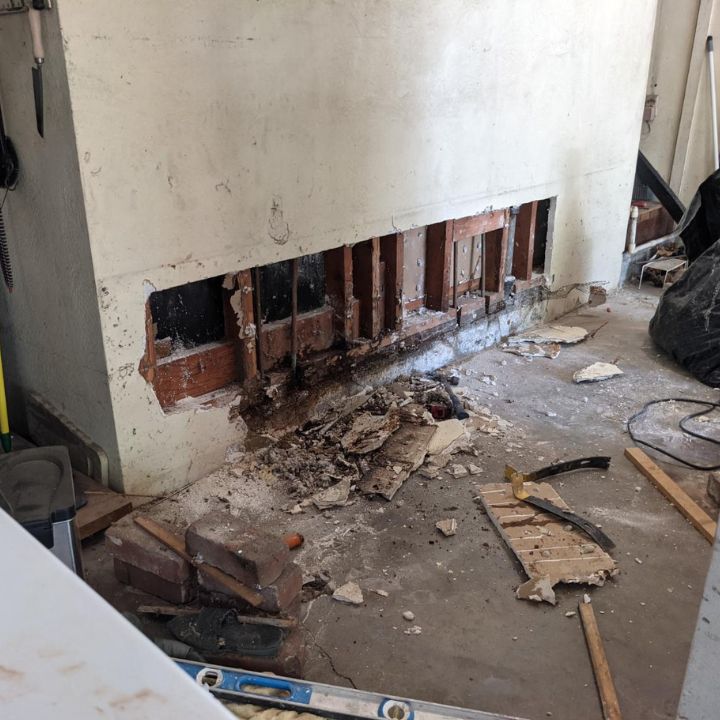Are you a dentist looking to build wealth—without going full-time into real estate?
You’re in the right place.
Whether you want to supplement your income, invest outside your practice, reduce taxes, or set yourself up for early retirement, real estate can help you do it.
As a former pharmacist and now full-time real estate investor, I know what it’s like to juggle a demanding medical career while building passive income and long-term legacy through rental properties.
This guide will show you the first steps to start investing—and how to build a future in this space.
Key takeaways
Here’s what you need to know upfront (because I know you’re busy):
- Rental properties are the best starting point for dentists: They offer reliable cash flow, long-term wealth, and major tax advantages without requiring you to quit your practice.
- Your income goals drive your investment strategy: Clarity on your monthly cash flow targets helps you reverse-engineer the right properties, financing, and team.
- You don’t need to do it alone: With the right education, systems, and advisors, you can build a profitable real estate portfolio while still working full-time as a dentist.
Ready to learn how? Here’s what we’ll cover:
Table of contents: Real estate for dentists
- Why real estate is a smart investment for dentists
- The most profitable real estate strategies for dentists
- How to start investing in real estate as a dentist
3.1 Set clear goals
3.2 Learn real estate investing
3.3 Build a real estate team
3.4 Find your first investment property
3.5 Finance your first rental property
3.6 Close on the property
3.7 Manage the property - How to overcome common real estate challenges dentists face
- Frequently asked questions about real estate for dentists
First, let’s start by understanding why real estate is such a smart investment strategy for you as a dentist.
Why real estate is a smart investment for dentists
Dentistry can be incredibly rewarding, but also stressful and financially unpredictable. According to the American Dental Association, burnout and severe stress are increasingly common among dental professionals.
And while dentist salaries are high, so is student loan debt. For many, traditional retirement plans simply don’t provide enough security or flexibility.
That’s why investing in real estate is a good move for dentists. Because with real estate, you can:
- Diversify your income
- Build long-term wealth through property appreciation
- Reduce your tax burden with real estate deductions
- Create passive income that frees up your time
- Achieve financial independence—on your own terms
I know it’s possible because I’ve done it myself. I used to be a full-time pharmacist, burnt out and unsure of what was next. Through real estate investing, I built enough wealth to retire by 30—and you can too.

Thanks to my portfolio, I’ve been able to retire, travel more, and spend more time with my family
Here’s why real estate is such a smart investment especially for us healthcare professionals:
Next up: Let’s look at the best real estate strategies for dentists who want to invest without giving up their practice.
The most profitable types of real estate investments for dentists
What’s the most profitable real estate investment for dentists? That depends on your goals, time, and risk tolerance.
The good news is: you don’t need to go all-in or quit your practice. You can start small and scale as your income grows.
Here are the top real estate strategies for dentists:
- Own your dental office building: Buying your practice’s building lets you stop paying rent and start building equity. You can also lease extra space to other healthcare providers, creating an additional income stream.
- Residential rentals (single-family, multifamily): This is one of the most common entry points. You purchase homes and rent them out to long-term tenants. I personally invest in single-family homes and convert them into high-cash-flow student housing—great for stability and steady returns.
- Commercial real estate (beyond your practice): Commercial properties (like office buildings, strip malls, or storage units) can offer strong returns, but they come with higher risks like longer vacancies and market volatility. Still, they’re a powerful option for dentists ready to scale.
- Real estate investment trusts (REITs) and syndications: If you want passive exposure to real estate without managing properties, syndications or REITs (Real Estate Investment Trusts) are solid choices. You invest your capital, and a professional team manages the portfolio. Returns are typically lower, but so is the effort.
Not sure which one fits your lifestyle and goals? Watch this quick video to learn more:
In short:
If you’re just getting started with real estate investing, rental properties are the smartest and most accessible way to build wealth.
They offer:
- Reliable monthly cash flow to supplement (or replace) your dental income
- Long-term appreciation to grow your net worth
- Major tax advantages like depreciation and mortgage interest deductions
- The ability to scale—even while working full-time
But can you actually get into the rental property business with a full-time job…? That’s what we’ll look at next.
How do you start investing in real estate as a dentist?
You don’t need to quit your dental career to start building wealth through real estate.
Whether you’re aiming for passive income, tax savings, or early retirement, here’s exactly how to get started:

1. Set clear income and wealth goals
Before you invest in real estate, you need to know your numbers.
Your financial goals will shape everything, from the type of properties you buy to how actively you manage them.
Ask yourself:
- How much income do you want to earn per month?
- What’s your target net worth over the next 5, 10, or 20 years?
- Do you want to reduce clinical hours or retire? How soon?
- What monthly income would give you true financial freedom?
Here are examples of income-driven goals:
- Earn $3,000/month in passive income to cover basic living expenses
- Replace 50% of your dental income within 5 years
- Save $500,000 in real estate equity to boost your retirement plan
- Hit a $10,000/month cash flow target to exit dentistry altogether
- Build $5 million in net worth through long-term appreciation and cash flow
When you define a clear dollar goal, it becomes much easier to reverse-engineer your strategy and stay focused as you grow.
Take my example: I had one clear goal—replace my full-time income as quickly as possible so I could leave my job.
To get there, I built a plan around that income target:
- I picked up extra hospital shifts to save aggressively for my first investment
- I reinvested every dollar of cash flow into buying more rental properties
- I focused on scaling fast, not slowly accumulating over 30 years
That strategy helped me build a cash-flowing portfolio while still working full time.
Your goal might not be quitting. Maybe it’s earning $3,000/month in passive income, or retiring a decade early.
Whatever it is—understand what it is first.

2. Learn real estate investing (the smart way)
Once you’ve set a clear income goal, the next step is to educate yourself on how to reach it through real estate investing.
There’s no shortage of resources out there, but the key is to focus on learning from people who’ve actually built wealth through real estate, not just theory.
Start with:
- Webinars and podcasts on real estate investing basics
- Books on rental property strategies and financial freedom
- YouTube videos that walk through real deals and returns
- Online courses focused on passive income and portfolio growth
- Mentorship or coaching from active investors
💡 Real estate is one of the best ways to build long-term income, but it’s also full of hidden pitfalls.
I learned this the hard way: My first rental property left me with a $30,000 repair bill I didn’t see coming. Mistakes like that can crush your returns and slow your progress.
That’s why working with a real estate coach or experienced mentor can fast-track your results.
As a former pharmacist, I’ve helped many healthcare professionals find high-yield properties, run the numbers correctly, and avoid costly beginner mistakes—while still working full-time.

My client Tim, a healthcare professional, bought a property for $62,000 – with a $1,600 cash flow
3. Build a team that grows your wealth (while you focus on dentistry)
Want to invest in real estate without burning out or managing everything yourself?
The secret is to build a team that helps you grow your income and portfolio.
Here are the key players to add to your real estate investing team:
- Mortgage broker: Helps you secure the best financing based on your income and goals
- Real estate agent: Finds deals that align with your cash flow and appreciation targets
- Insurance agent: Ensures you have the right policies for rental properties (not just owner-occupied homes)
- CPA (specialized in real estate): Helps you reduce your tax burden and plan for long-term wealth
- Property manager (optional): Handles tenant communication and day-to-day maintenance; however, you can increase profitability and manage properties yourself without taking on another full-time job
- Contractors & repair pros: Keep your properties in good shape, affordably and reliably
And how do you find the right team for you?
- Ask for referrals from local real estate investors or coaches
- Interview multiple people—don’t settle for the first agent or CPA you meet
- Check online reviews or request references to verify their track record
Up next: Let’s talk about how to choose the right first property to match your financial goals.
4. Find your first investment property (that builds real income)
Now that you’ve defined your goals and built your team, it’s time to find a rental property that aligns with your income targets.
Step 1: Know your financial starting point
Before shopping, review:
- Your savings (for a down payment + reserves)
- Your credit score (higher = better loan terms)
- Your debt-to-income ratio (used by lenders to assess risk)
Step 2: Understand what makes a rental profitable
When analyzing properties, focus on these key numbers:
- Cash flow: Monthly income after all expenses (mortgage, taxes, insurance, maintenance)
- ROI (Return on Investment): How much you earn as a percentage of your initial investment
These numbers will tell you if the property actually helps you reach your income goal.
Step 3: Evaluate the right property for your first investment
Look for properties that check these boxes:
- Good location: Low crime, stable rental demand, job growth
- Solid condition: Minimal repairs needed to start cash flowing quickly
- Fair market price: Priced right for the area and your return targets
Want to see what to look for in a great first rental? Watch this video:
5. Finance your first rental property
Unless you have significant cash saved, you’ll likely need financing to purchase your first property.
The good news? As a dentist, your stable income and credit profile can unlock powerful financing options that help you build wealth faster.
Traditional financing
Most new investors start with a conventional mortgage, which typically requires:
- 15%–20% down payment for investment properties
- Strong credit score
- A healthy debt-to-income ratio
This is one of the most straightforward ways to secure a property, especially if you’re investing in a single-family or small multifamily rental.
Alternative financing options
If you’re short on capital or want to move faster, consider:
- Private money: Borrow from family, friends, or investors looking for a return
- Hard money loans: Short-term, asset-based loans (ideal for fix-and-flip strategies)
- Government-backed loans: FHA or VA loans may be options if you plan to live in the property
- Home equity: Use the equity in your primary residence as leverage for your down payment
- DSCR loans: DSCR loans focus on the property’s potential income and not the borrower’s personal financial profile.
Smart starter strategy: House hacking
If you’re looking for the most affordable way to get started, house hacking is a proven wealth-building strategy.
Here’s how it works:
- You buy a single-family property
- You live in one room and rent out the others
- The rental income covers your mortgage so you live for free (or close to it)
- You get access to better downpayment terms with a downpayment of 3-5%
House hacking is one of the fastest ways to build equity, generate income, and reduce your living expenses. I should know – I live rent free in California thanks to this strategy:
6. Close on the property
You’ve found a great rental property, secured financing, and are ready to make it yours.
But before the deal is final, there are a few critical steps to protect your investment.
Here’s how to successfully close on your first rental property:
1. Schedule due diligence
Book a home inspection and property appraisal as soon as you’re under contract.
- The inspection will reveal hidden issues that could affect your ROI
- The appraisal confirms that the price matches the property’s market value
2. Negotiate based on findings
Use the results of the inspection or appraisal to renegotiate:
- Ask for a lower price if issues are uncovered
- Request the seller to make certain repairs
- Walk away if the deal no longer meets your financial goals
3. Secure insurance
Purchase landlord or rental property insurance (not just standard homeowner’s insurance).
- Submit proof of insurance to your lender and escrow agent before closing
4. Run a title check
A title company will ensure the property has a clear ownership record—free of liens, legal disputes, or outstanding claims.
- They’ll also issue title insurance to protect you against future ownership issues
If everything checks out and your paperwork is in order, you’ll sign the final documents and officially become the property owner.
From here on out, it’s about turning your investment into consistent, predictable income.
Next, we’ll talk about how to manage your property (without becoming a 24/7 landlord).
7. Manage the property (simple steps)
Managing your rental property doesn’t have to mean 2 a.m. phone calls or juggling tenant complaints during your clinic hours.
There are two proven ways to manage your investment without sacrificing your time or income.
Option 1: Hire a property manager
If you want to stay completely hands-off, a property manager can handle:
- Rent collection
- Maintenance and repairs
- Tenant screening and turnover
- Legal and lease compliance
The problem with property managers? They quickly eat up profitability.
Option 2: Use the “tenant empowerment” method
If you want to self-manage (and keep more of your income), I recommend a system I call tenant empowerment. It’s what I personally use and it saves me hours every month.
Here’s how it works:
- For simple maintenance issues (like a leaky sink), tenants are instructed to contact a pre-approved service provider directly
- Once the issue is fixed, they send me the receipt
- I reimburse or deduct from rent as needed without any back-and-forth or delays
This approach:
- Keeps tenants happy with faster fixes
- Saves you time (and mental bandwidth)
- Helps you scale your income without adding work
Up next: Let’s talk about some of the biggest real estate investing challenges for dentists—and how to overcome them.

How to overcome common challenges dentists face
Even high-earning professionals like dentists face roadblocks when starting their real estate journey. But the good news? Every challenge has a proven solution, and with the right plan, you can build wealth fast.
Here are the top issues I see with my clients—and how to overcome them:
1. Lack of time to manage properties
Real estate may seem time-intensive, but with the right systems, it can fit seamlessly around your dental practice.
Solution:
- Use time blocking to schedule focused property tasks
- Leverage a team
- Automate recurring tasks like rent collection or maintenance follow-ups
2. Fear of risk or lack of real estate education
If you’re risk-averse by nature, investing in real estate can feel like a massive risk. The key is turning uncertainty into informed action.
Solution:
- Study cash flow and ROI basics
- Learn from active investors, not just theory
- Take courses, attend webinars, and work with a coach who understands the dental profession
3. Worries about debt or overleveraging
With student loans and high practice expenses, taking on more debt can feel intimidating. But not all debt is bad; smart leverage is what builds wealth in real estate.
Solution:
- Run your personal numbers (credit, savings, debt-to-income ratio) before investing
- Maintain a financial cushion for emergencies
- Only invest in deals that produce positive monthly cash flow
4. Lack of trusted advisors
Trying to figure out real estate alone can lead to costly mistakes or stalled progress. The right advisors can save you time, money, and stress.

I made some expensive mistakes when I started out, mainly because I tried to figure everything out on my own. My first property looked promising, but it needed far more repairs than I realized. That misstep set me back years. If I’d had the right support from the beginning, I could’ve avoided those delays and grown my portfolio much faster. That’s why I’m so passionate about helping other pharmacists start smart, avoid common pitfalls, and invest with confidence.
Solution:
- Work with a real estate coach who has experience helping healthcare professionals
- Build a team of vetted experts (agent, CPA, lender, insurance pro)
- Get advice tailored to your goals and risk tolerance
Frequently asked questions: Real estate investing for dentists
Is real estate a good investment for dentists?
Yes. Real estate is one of the best ways for dentists to build passive income, reduce taxes, and create long-term wealth. It offers predictable cash flow, appreciation, and portfolio diversification outside of dentistry.
Can I invest in real estate while working full-time as a dentist?
Absolutely. Many dentists successfully invest while running a practice or working full-time. By building the right team, using efficient systems, and choosing the right strategy (like rental properties), you can grow your wealth without sacrificing your career.
What type of real estate investment is best for dentists?
For most dentists, residential rental properties are the best starting point. They offer stable cash flow, strong tax advantages, and are easier to manage or outsource. Other great options include owning your dental office, commercial properties, or passive vehicles like REITs and syndications.
How much money do I need to start investing in real estate?
You’ll typically need 15–20% down for an investment property, plus reserves. However, strategies like house hacking or using private money can help you start with less. Many dentists start with $40K–$80K depending on the market and financing method.
What are the tax benefits of real estate for dentists?
Real estate offers powerful tax advantages, including depreciation (to offset taxable income) and mortgage interest deductions. A real estate-savvy CPA can help maximize these benefits.
I’m risk-averse—how can I invest safely?
Start by educating yourself on cash flow, ROI, and property analysis. Choose lower-risk properties in strong rental markets, maintain a financial cushion, and avoid overleveraging. Working with a real estate coach or mentor also helps reduce mistakes and build confidence.
Should I buy my dental office building?
You can—owning your dental office can be a smart wealth-building move. You stop paying rent, build equity, and may even generate extra income by leasing space to other professionals. However, run the numbers to understand if this or investing in single family rental property is the best move.
How long does it take to replace part of my dental income with real estate?
That depends on your cash flow goals and how aggressively you invest. Some dentists replace 25–50% of their income within 3–5 years by acquiring a small portfolio of high-performing rentals. Clear financial goals and consistent action make the biggest difference.
Do I need a real estate coach or mentor?
While not required, having a real estate coach familiar with healthcare professionals can dramatically reduce your learning curve and help you avoid costly mistakes. Many dentists find that coaching pays for itself in speed, confidence, and deal quality.
Get started today!
And there you have it! Everything you need to know about real estate for dentists.
Real estate isn’t just a side hustle—it’s a proven path to financial freedom, tax savings, and long-term wealth. While dentistry gives you a respected, high-income career, real estate gives you the option to work on your own terms.
The most successful dentists-turned-investors aren’t the ones with the most free time. They’re the ones who take focused, consistent action—even with full calendars.
So whether you want to reduce your clinical hours, retire a decade early, or create a lasting legacy for your family… real estate can get you there.
Ready to take the first step?


